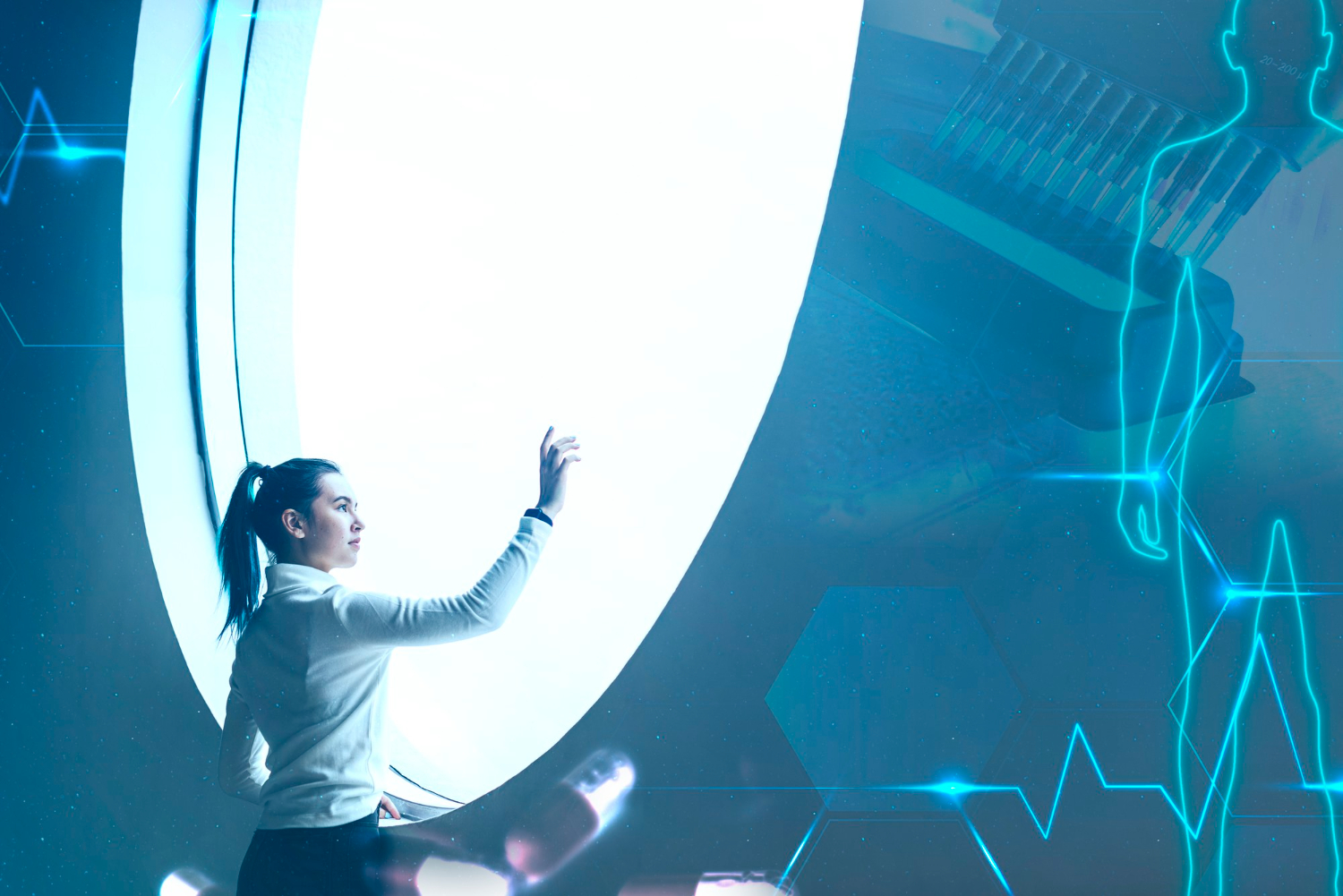


Artificial intelligence (AI) is now a key player in medical research. Its applications range from patient diagnosis and drug discovery to enhancing communication between doctors and patients, interpreting medical records, and providing remote patient care.
AI in healthcare refers to using machine-learning algorithms and software to replicate human thought processes in analyzing, presenting, and interpreting complex medical data. Essentially, AI involves the ability of computer algorithms to draw conclusions based solely on the input data they receive.
The primary goal of AI applications in healthcare is to explore connections between clinical practices and patient outcomes. AI programs facilitate various activities, including diagnostics, treatment protocol development, drug discovery, personalized medicine, and patient monitoring. What sets AI apart from traditional healthcare technologies is its ability to gather and process data, ultimately producing clear outcomes for users. AI achieves this via machine learning algorithms and deep learning techniques, which can identify patterns in behavior and develop their own reasoning.
For AI models to yield useful insights and predictions, they must be trained on large datasets. AI algorithms operate differently than humans in two primary ways:
AI serves as a triage tool for clinicians, assisting them in reviewing images and scans. This technology helps radiologists and cardiologists spot critical insights that enable them to prioritize urgent cases, avoid potential misinterpretations of electronic health records (EHRs), and make more accurate diagnoses.
A clinical report often generates vast amounts of data and images that need to be analyzed. AI algorithms can quickly process these datasets, comparing them with past studies to identify patterns and remote connections. This capability allows imaging professionals to extract essential information swiftly.
Supercomputers are leveraged to predict molecular patterns where potential drugs may not be effective against various diseases. Utilizing convolutional neural networks, technology like AtomNet has been able to forecast how small molecules bind to proteins by analyzing vast amounts of experimental data and protein structures. This method enables the identification of safe and effective drug candidates from extensive datasets, ultimately lowering drug development costs.
Healthcare professionals often struggle to keep current with the latest clinical advancements while providing high-quality, patient-centered care due to the overwhelming amount of health data and records. AI can rapidly sift through EHRs and biomedical information from clinical units, delivering timely and accurate responses to clinicians.
Much of the health data and patient records are stored in complex, unstructured formats, making them difficult to navigate and interpret.
Rather than being overwhelmed by the need to search for, identify, compile, and transcribe critical information, AI can efficiently seek, gather, store, and standardize medical data in any format. This innovation helps streamline routine tasks and equips healthcare providers with quick, effective, and tailored treatment options for patients.
AI algorithms can uncover new drug applications, assessing both their safety profiles and mechanisms of action. This technology has led to the development of clinical research platforms that enable the repurposing of existing drugs and explore their bioactivities.
By merging the best aspects of biology, data science, and automation with advanced AI technologies, the foundational company of this platform can process around 80 terabytes of biological data weekly across 1.5 million studies.
Acute kidney injury (AKI) can be challenging for clinicians to detect, yet it can lead to rapid patient deterioration and mortality. With an estimated 11% of hospital deaths attributed to failure in identifying and treating AKI patients, early prediction and intervention can significantly reduce the overall need for long-term treatments, including kidney dialysis.
In the event of a heart attack, the time from emergency call to ambulance arrival is critical for patient survival. For greater chances of recovery, emergency dispatchers must quickly recognize heart attack symptoms. AI can analyze both verbal and nonverbal cues to facilitate accurate diagnoses during these critical moments.
Corti is an AI tool designed to aid emergency medical personnel. It analyzes the caller’s voice, background noise, and relevant patient data to alert emergency responders of a potential heart attack. Similar to other machine learning technologies, Corti does not search for specific symptoms but instead trains itself to recognize urgent indicators by processing a vast range of information.
As we move forward, AI is poised to add value by either automating or enhancing the roles of clinicians and staff. Many repetitive tasks will become fully automated, and AI can serve as a valuable tool that helps healthcare professionals excel in their work, ultimately improving patient outcomes.
With its ability to streamline processes, AI has the potential to enhance both the quality of life for clinicians and patient experiences in hospitals and medical practices nationwide. As we step into 2023, healthcare providers can increasingly leverage AI to optimize the care process.